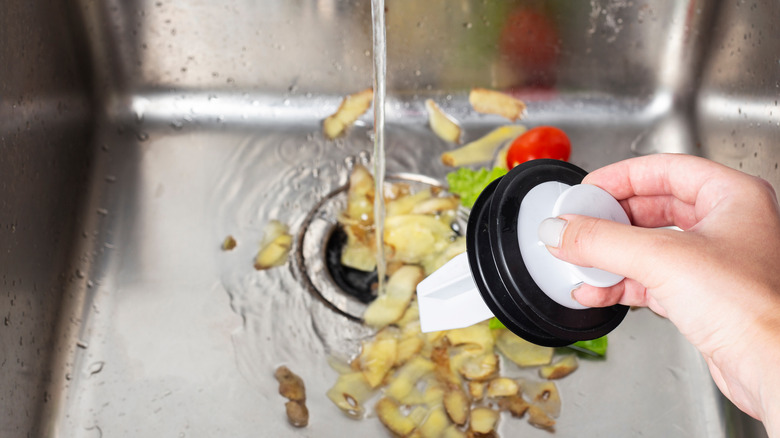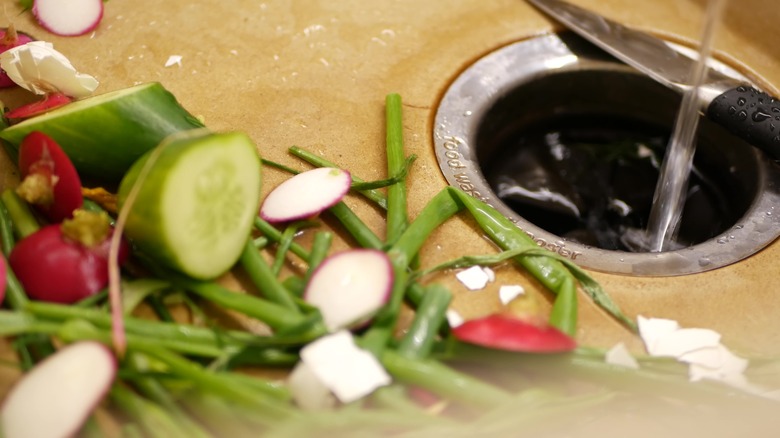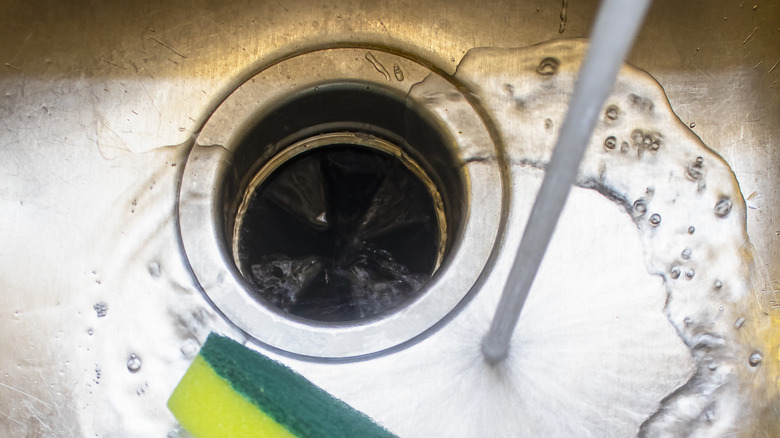Why You Should Never Send Potato Peels Down The Garbage Disposal
A garbage disposal can be an invaluable tool in the kitchen. There's no need to collect food scraps; just throw them into the sink, turn on the water, and flip a switch to put that disposal into action. Using the disposal, like composting, keeps food waste from landfills, where they create methane gas that contributes to climate change (per USDA).
If one of your favorite foods is mashed potatoes and you use the disposal to get rid of the skins, we have bad news for you. Unfortunately, potato peels should never be sent down the garbage disposal. To understand why it's helpful to know how a garbage disposal works.
When the disposal is turned on, a mechanism starts to spin rapidly, creating a centrifugal force to push the food against the inside rim of the unit, which is studded with sharp metal bits and called a grind ring. It continues to turn until the food is chopped into pieces small enough to fit down the wastewater pipe. Check out this video on YouTube if you want to see it in action.
Just say no to potato peels
Most of us find out the hard way which foods are safe to put in a garbage disposal, and many frustrated cooks have seen their hard-earned money go down the drain after paying a plumber to sort out a clog.
Several foods should never be put in a garbage disposal, and it may surprise you that potato peels are one of those foods. The explanation for why isn't that the grinder can't chew them up, it's something more complicated that you might have never thought about. The starch in potatoes, over time, can build up on the grind ring of the disposal, turning into a kind of sticky glue that will jam up the device and keep it from working correctly.
Potato peels aren't the only thing that shouldn't be put down the disposal. According to Food Network, artichoke leaves can create a kitchen disaster, and other fibrous foods like celery, corn husks and silk, and asparagus can cause problems with the grinding mechanism (per American Home Shield).
Keep it clean
Fats and grease, like the starch in potato peels, can build up and create a clog, so avoid putting those down the drain, too. You should always use cold water when running the disposal. Cold water will solidify any fats that may have made their way into the garbage disposal. Hot water will melt the fat, which could either build up in the disposal or re-solidify somewhere else in your plumbing, causing a clog (per Thermal Services).
If your disposal is clogged with starch from potato peels, try this trick from Mr. Kitchen Faucets before calling a plumber: Pour ¼ cup of baking soda down the drain and turn on the disposal for a few seconds. Let the baking soda sit for 10-15 minutes before pouring in one cup of white vinegar and letting the mixture bubble for a few minutes. Then, pour in boiling water and run the disposal. Not only will this dissolve the starch, but it will eliminate any odors coming from the drain.


